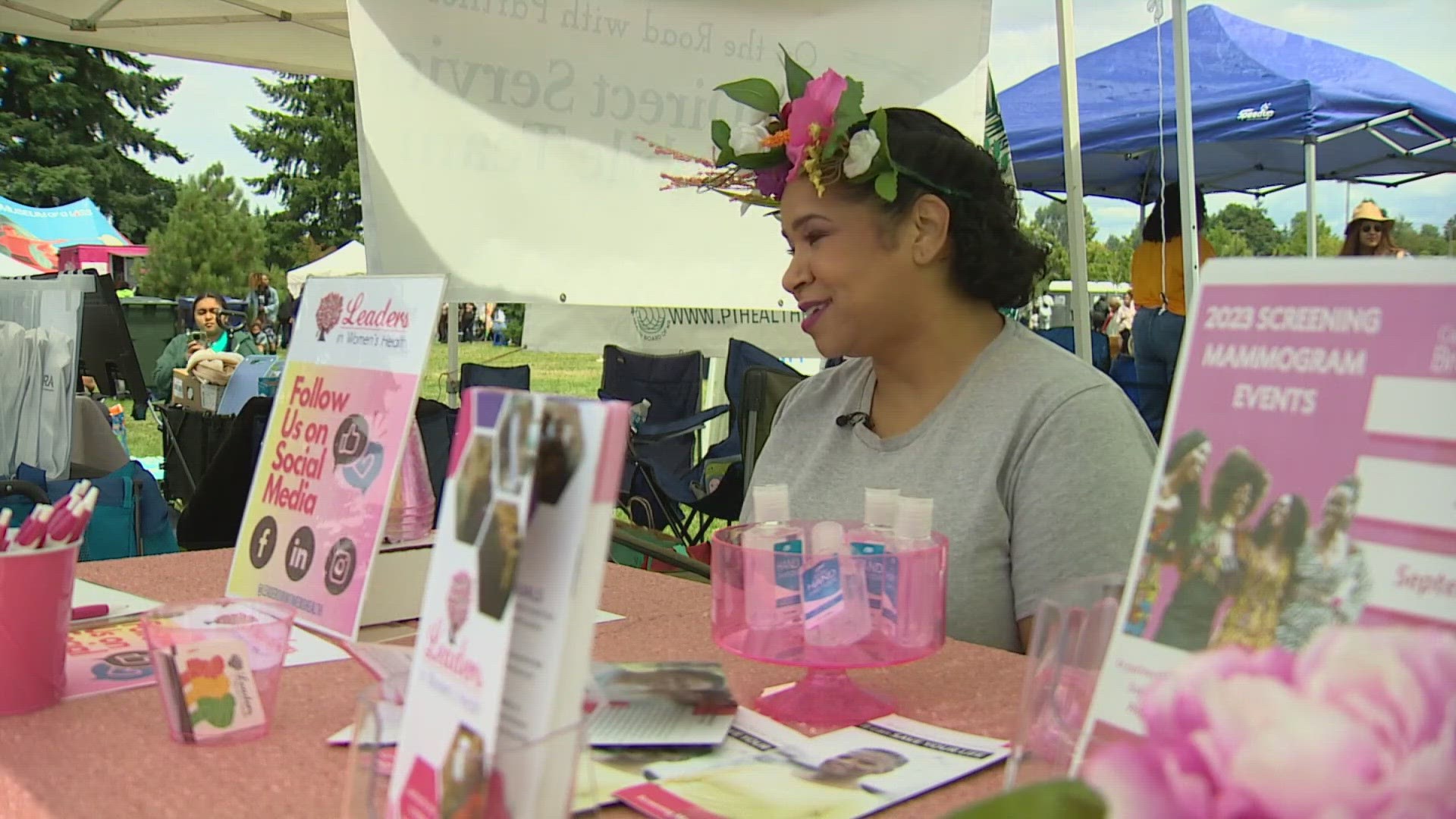TACOMA, Wash. — Tacoma joined the rest of the country in celebrating Juneteenth, with songs, food, and fellowship.
But while many were enjoying the day, Alicia Klein was on the clock. Klein currently works as the president of Leaders in Women’s Health and says she joined because she saw a disturbing pattern during her years working in healthcare.
“I noticed there was a huge disconnect between leadership, and the folks taking care of the patients,” she said. “Most of the folks taking care of the patients looked like me, were people of color, and then you had leadership in the hospital who were old, White men.”
Klein says that disconnect leads to a distrust that keeps people from needed medical care, which leads to lower health outcomes, such as in maternal and infant mortality.
The Tacoma Pierce County Health Department released a report in 2019 that stated Black women are 2-3 times more likely to die from a pregnancy-related cause than their white counterparts.
The report also says Pierce County has one of the highest infant mortality rates in Washington, and infants born to Black women in the state are more than twice as likely to die as infants born to white women.
The report suggested that implicit bias could be a factor in these racial disparities, and in 2020, declared racism a public health crisis, and debuted programs to directly combat bias in healthcare. Since then, Klein says the county has started to move in the right direction.
“I think there’s a lot of efforts going in place between the Health Department and local hospital systems in the area,” Klein said. “They’re really trying to be diverse and equitable in the way they provide treatment to people, whether that be training for their providers, whether that be consulting with organizations like Leaders in Women’s Health and talk about whether their programs are equitable and where they need to improve.”
Klein says the Health Department’s efforts to collaborate with organizations like hers to create community-based solutions help connect people to vital healthcare.
“I love the idea of women and men in a community making a difference, and making a change and making it themselves, and not letting someone else tell them what to do,” she said.
Klein went on to say that although Pierce County is taking the right first steps, addressing racial disparities in healthcare requires resources and proper funding.
"Efforts cost money and in order to make a change there has to be an investment," she warns. "Without the investment, it's not going to be long-term."

